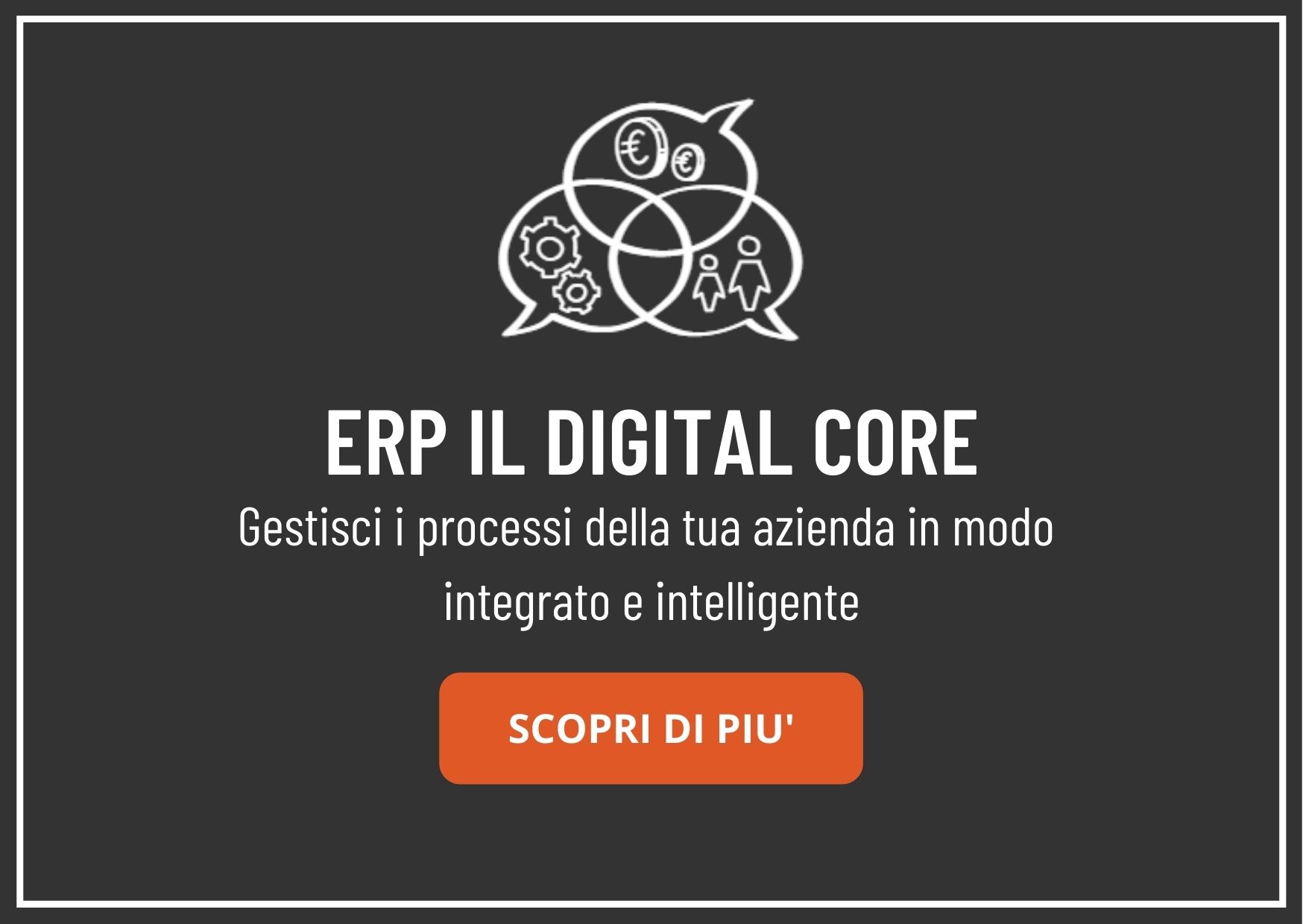For companies in every sector, but particularly those related to manufacturing, business process efficiency is one of the keys to maintaining competitiveness in a market that presents increasingly complex challenges. To do so, it is essential to fully embrace the paradigms of digital transformation through the adoption of a digital core, i.e., a platform that acts as a foundation, and facilitator, for the adoption of technology solutions. The SAP S/4HANA Core is one of the most effective choices in this regard, both because of its proven robustness and reliability over the years and because of the company’s commitment to providing innovative, up-to-date solutions for the digitization of business processes.
How does the SAP Core work?
The SAP S/4HANA core represents the heart of the SAP software and infrastructure. It manages the core functionality of the ERP system, such as accounting, purchasing and inventory management, production management, and personnel management. The SAP core, in addition to serving as the backbone, integrates with other modules and solutions to create an integrated platform, while still allowing connection with third-party applications and solutions.
Among the many additional features offered by the SAP core we can mention:
- SAP CRM for customer relationship management
- SAP SRM for supplier management
- SAP SCM for supply chain management
- SAP BW for enterprise data analysis
Through the Business Technology Platform, SAP offers one of the most comprehensive solutions for integration with third-party solutions, including on premises or built in-house.
The benefits of business process management with SAP
The unified view of business data and streamlined processes are definitely the main benefits offered by SAP solutions, improving visibility and transparency of operations at every level, throughout the supply chain, increasing operational efficiency and reducing overall costs.
One of the main ones is, as we have mentioned, the ability to standardize and simplify business operational processes. Thanks to its integrated architecture, SAP enables companies to have a unified view of their processes and to automate the most repetitive tasks, thereby reducing errors and reducing the number of man-hours.
This optimization, in addition to being guaranteed by the many possibilities for implementation, can be carried out according to data-driven logic: the data and information collected can be used to carry out advanced analysis and identify possible bottlenecks, facilitating their correction.
Compared with older counterpart solutions, it should be pointed out that this type of optimization is a continuous process, allowing for the introduction of dynamic improvement modes, including changes in scenario, market or production needs.
In the area of cyber security, the SAP core provides a single point of access for all corporate data and information, improving the overall security of the infrastructure through more timely and centralized access control. With SAP, information is integrated and shared across modules, allowing users to access data in real time anywhere, anytime. This very breaking down of information silos is one of the foundations of the right approach to digital transformation.
With SAP’s ability to integrate all information into a single source of trust, companies are able to monitor their activities in real time and react promptly to changes in the market.
SAP core implementation and customization. The importance of flexibility
To achieve the best results, implementing SAP in your company requires a strategic and well-planned approach, which starts with defining key processes, expectations for improvement and business needs. Then, you need to select the SAP modules best suited to your company’s needs and plan the software implementation.

Partners play an important role in SAP core customization and integration. With tailor-made solutions, they can help companies configure and customize the implementation, meeting the needs that emerge in the preliminary analysis phase. In addition, SAP partners can assist companies with data migration and platform integration with other enterprise software.
On the customization tools side, SAP offers numerous options: in addition to the already mentioned Business Technology Platform, mention should be made of SAP Fiori, for building interfaces with a unified user experience, and SAP ABAP (Advanced Business Application Programming).
These make it possible to adapt the SAP core to any business process management need, while at the same time retaining a high level of standardization, which is necessary to preserve useful standards for component upgrades and security.
Core SAP: the key ally for competitiveness
We have seen how using SAP can help companies gain a competitive advantage, improve operational efficiency, reduce costs, and improve visibility into business data. In addition, SAP infrastructure is flexible enough to adapt to the needs of companies and also support them as they evolve and grow.
For companies that wish to increase their operational efficiency, gain greater visibility into business processes, and achieve comprehensive management control, using SAP is therefore the winning choice.
For us,transforming business processes means transforming the way people work. We can work with you to understand your needs, analyze your business processes and design the best solution for your business.
